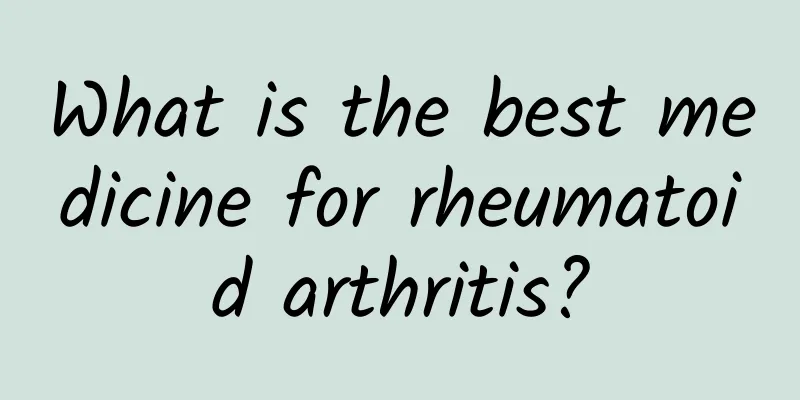What is depression?

|
There may not be many people with depression around us, but the number of people with depression in our country is increasing significantly every year. Depression is a psychiatric illness, also known as depressive disorder, which is mostly caused by emotional factors. The most important manifestation of depression is the patient's abnormal mood, lack of interest, and frequent depression. If this continues for a long time, severe cases may even have suicidal thoughts, which has also attracted widespread attention from the society. Some patients with depression can recover after treatment, but a few will experience relapses. Currently, depression is mostly treated with psychotherapy, which provides one-on-one psychological counseling to release patients' repressed emotions. However, in order to be cured, a deep understanding of depression is still required. 1. Depressed mood The main manifestations are significant and persistent low mood, depression and pessimism. In mild cases, people feel unhappy, have no sense of pleasure, and have a loss of interest. In severe cases, people feel extremely distressed, pessimistic and hopeless, and feel that each day is like a year worse than death. The depressed mood of typical patients has a rhythmic change from heavier in the morning to lighter at night. On the basis of depressed mood, patients will have lowered self-evaluation, and develop feelings of uselessness, hopelessness, helplessness and worthlessness, often accompanied by self-blame and guilt. In severe cases, they will have delusions of guilt and hypochondria, and some patients may experience hallucinations. 2. Slow thinking The patient's thinking and association are slow, his reaction is unsuccessful, his train of thought is blocked, and he feels that his "brain is like a rusty machine" and "his brain is like covered with a layer of paste." Clinically, active speech decreases, speech speed slows down significantly, voice becomes deep, and conversation becomes difficult. In severe cases, communication cannot proceed smoothly. 3. Decreased willpower The patient's volitional activity was significantly and persistently inhibited. The clinical manifestations are slow behavior, passive and lazy life, unwillingness to do things, unwillingness to contact and interact with people around, often sitting alone, or lying in bed all day, living alone with the door closed, alienating relatives and friends, and avoiding socializing. In severe cases, they even ignore physiological needs such as eating and drinking, as well as personal hygiene, and become unkempt and unkempt, and may even become speechless, motionless, and refusing to eat. This is called "depressive stupor," but upon careful psychiatric examination, the patient still reveals signs of pain and depression. Patients with anxiety may have symptoms such as restlessness, finger grasping, rubbing hands and feet, or pacing up and down. Severe patients often have negative suicidal ideas or behaviors. Negative and pessimistic thinking, self-blame and lack of self-confidence can give rise to thoughts of despair, such as thinking that "ending one's own life is a kind of relief" and "being a superfluous person in the world", and can cause suicide attempts to develop into suicide behaviors. This is the most dangerous symptom of depression and should be viewed with caution. 4. Impairment of cognitive function Studies have shown that patients with depression have impaired cognitive function. The main manifestations are decreased recent memory, attention disorder, prolonged reaction time, increased alertness, poor abstract thinking ability, learning difficulties, poor language fluency, decreased spatial perception, eye-hand coordination and thinking flexibility. Cognitive impairment leads to social dysfunction in patients and affects their long-term prognosis. 5. Physical symptoms The main symptoms include sleep disorders, fatigue, loss of appetite, weight loss, constipation, pain in any part of the body, loss of libido, impotence, amenorrhea, etc. Complaints of physical discomfort may involve various organs, such as nausea, vomiting, palpitations, chest tightness, sweating, etc. Symptoms of autonomic dysfunction are also common. Complaints of preexisting medical illness usually worsen. The main manifestation of sleep disorders is early awakening, generally 2 to 3 hours earlier than usual, and inability to fall asleep again after waking up, which is characteristic of depressive episodes. Some patients have difficulty falling asleep and shallow sleep; a few patients have excessive sleep. Weight loss is not necessarily proportional to loss of appetite. A small number of patients may experience increased appetite and weight gain. The above are the symptoms of depression. When you find that people around you have the above symptoms, you should provide timely counseling to nip the negative emotions in the bud. Also, do not be prejudiced against people with depression. When you encounter unhappy things in your daily life, you should vent them through certain channels. You can talk to your friends and family, so that you can stay away from depression. |
Recommend
What to do if you have constipation before your period
It is very normal to be constipated before menstr...
How to relieve liver pain? 6 ways to relieve pain
Liver pain is a late-stage symptom of liver cance...
What causes toe pain?
When walking in daily life, everyone should pay a...
I'm so sleepy but I can't sleep, what should I do?
After a busy day, it was almost early morning. I ...
What are the strong painkillers?
Painkillers are relatively common drugs in daily ...
What can you eat to reduce internal heat the fastest?
It is inevitable to get angry in daily life. Of c...
What nutrients are lacking in onychomycosis?
Onychomycosis is a relatively serious nail disease...
Medicinal effects of Scorzonera
You may not know about Scorzonera, but everyone k...
The efficacy and function of spring flowers
Formosan magnolia, also known as gardenia, genera...
What to eat for nosebleeds? Six foods can relieve them
If nosebleeds occur, we can regulate it through d...
Benefits of vinegar-soaked ginger for women
Ginger pickled in vinegar is a relatively good he...
Bleeding when pooping
Bleeding when defecating is a common symptom of b...
What medicine is good for itchy lower body?
People will encounter some diseases in their dail...
What should I do if I have a cervical cyst? What to eat is better?
Modern women are becoming more and more outstandi...
How to treat scarlet fever? Antibacterial therapy can be used
The symptoms of scarlet fever are very similar to...









